第18章 THE THIRD(4)
Every month there came to my mother a little magazine called, if Iremember rightly, the HOME CHURCHMAN, with the combined authority of print and clerical commendation.It was the most evil thing that ever came into the house, a very devil, a thin little pamphlet with one woodcut illustration on the front page of each number; now the uninviting visage of some exponent of the real and only doctrine and attitudes, now some coral strand in act of welcoming the missionaries of God's mysterious preferences, now a new church in the Victorian Gothic.The vile rag it was! A score of vices that shun the policeman have nothing of its subtle wickedness.It was an outrage upon the natural kindliness of men.The contents were all admirably adjusted to keep a spirit in prison.Their force of sustained suggestion was tremendous.There would be dreadful intimations of the swift retribution that fell upon individuals for Sabbath-breaking, and upon nations for weakening towards Ritualism, or treating Roman Catholics as tolerable human beings; there would be great rejoicings over the conversion of alleged Jews, and terrible descriptions of the death-beds of prominent infidels with boldly invented last words,--the most unscrupulous lying; there would be the appallingly edifying careers of "early piety"lusciously described, or stories of condemned criminals who traced their final ruin unerringly to early laxities of the kind that leads people to give up subscribing to the HOME CHURCHMAN.
Every month that evil spirit brought about a slump in our mutual love.My mother used to read the thing and become depressed and anxious for my spiritual welfare, used to be stirred to unintelligent pestering....
2
A few years ago I met the editor of this same HOME CHURCHMAN.It was at one of the weekly dinners of that Fleet Street dining club, the Blackfriars.
I heard the paper's name with a queer little shock and surveyed the man with interest.No doubt he was only a successor of the purveyor of discords who darkened my boyhood.It was amazing to find an influence so terrible embodied in a creature so palpably petty.He was seated some way down a table at right angles to the one at which I sat, a man of mean appearance with a greyish complexion, thin, with a square nose, a heavy wiry moustache and a big Adam's apple sticking out between the wings of his collar.He ate with considerable appetite and unconcealed relish, and as his jaw was underhung, he chummed and made the moustache wave like reeds in the swell of a steamer.It gave him a conscientious look.After dinner he a little forced himself upon me.At that time, though the shadow of my scandal was already upon me, I still seemed to be shaping for great successes, and he was glad to be in conversation with me and anxious to intimate political sympathy and support.I tried to make him talk of the HOME CHURCHMAN and the kindred publications he ran, but he was manifestly ashamed of his job so far as I was concerned.
"One wants," he said, pitching himself as he supposed in my key, "to put constructive ideas into our readers, but they are narrow, you know, very narrow.Very." He made his moustache and lips express judicious regret."One has to consider them carefully, one has to respect their attitudes.One dare not go too far with them.One has to feel one's way."He chummed and the moustache bristled.
A hireling, beyond question, catering for a demand.I gathered there was a home in Tufnell Park, and three boys to be fed and clothed and educated....
I had the curiosity to buy a copy of his magazine afterwards, and it seemed much the same sort of thing that had worried my mother in my boyhood.There was the usual Christian hero, this time with mutton-chop whiskers and a long bare upper lip.The Jesuits, it seemed, were still hard at it, and Heaven frightfully upset about the Sunday opening of museums and the falling birth-rate, and as touchy and vindictive as ever.There were two vigorous paragraphs upon the utter damnableness of the Rev.R.J.Campbell, a contagious damnableness I gathered, one wasn't safe within a mile of Holborn Viaduct, and a foul-mouthed attack on poor little Wilkins the novelist--who was being baited by the moralists at that time for making one of his big women characters, not being in holy wedlock, desire a baby and say so....
The broadening of human thought is a slow and complex process.We do go on, we do get on.But when one thinks that people are living and dying now, quarrelling and sulking, misled and misunderstanding, vaguely fearful, condemning and thwarting one another in the close darknesses of these narrow cults--Oh, God! one wants a gale out of Heaven, one wants a great wind from the sea!
3
While I lived at Penge two little things happened to me, trivial in themselves and yet in their quality profoundly significant.They had this in common, that they pierced the texture of the life I was quietly taking for granted and let me see through it into realities--realities I had indeed known about before but never realised.Each of these experiences left me with a sense of shock, with all the values in my life perplexingly altered, attempting readjustment.
One of these disturbing and illuminating events was that I was robbed of a new pocket-knife and the other that I fell in love.It was altogether surprising to me to be robbed.You see, as an only child I had always been fairly well looked after and protected, and the result was an amazing confidence in the practical goodness of the people one met in the world.I knew there were robbers in the world, just as I knew there were tigers; that I was ever likely to meet robber or tiger face to face seemed equally impossible.